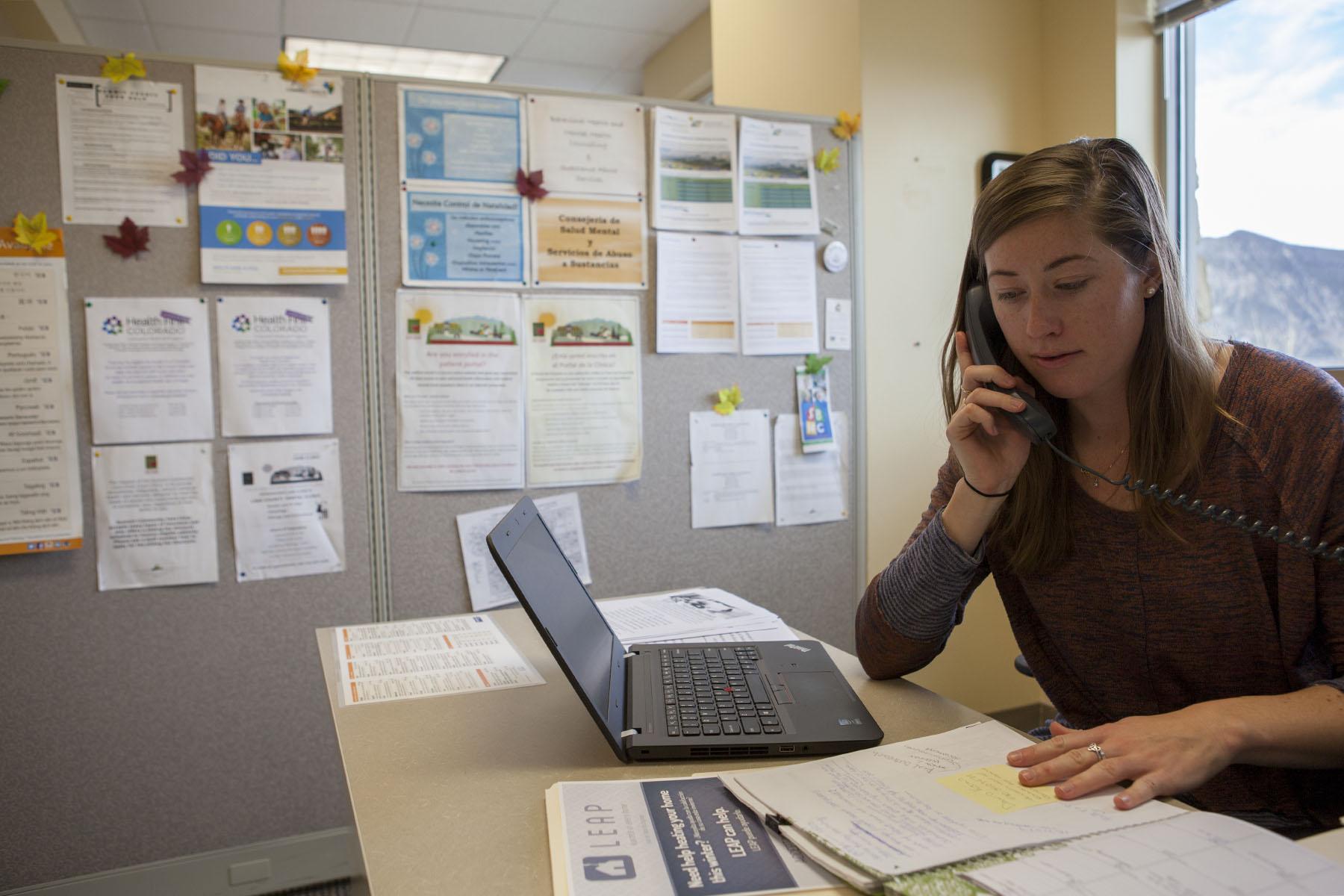Safety Net Clinic Week: Stories from Rural Colorado

I sit across the table from Kelly Erb, the policy analyst at the Colorado Rural Health Center. She seems as excited to sit down and talk with me as I am to sit down and talk with her. I learn that we are both small-town gals who have a passion for rural health.
Out of her briefcase come pamphlets and papers filled with diagrams, maps, and numbers, all outlining the state of health in rural Colorado. Each year the Colorado Rural Health Center publishes its “Snapshot of Rural Health,” which outlines and illustrates conditions in Colorado.
About 750,230, or 14 percent, of Coloradans live in the 47 of 64 counties that are designated rural or frontier. Rural refers to a nonmetropolitan county with no cities over 50,000 residents and frontier refers to a county that has a population density of six or fewer residents per square mile. The environmental and economic conditions of rural counties vary widely.
However, many of these counties are similar in that they lack adequate health services. Of the rural counties in Colorado, 24 do not have a licensed addiction counselor, 22 do not have a licensed social worker, 13 do not have a hospital, and one county (San Juan) does not have a physician. This severely impacts the frequency and level of care rural residents can receive.
It can take up to three years to recruit a physician in rural Colorado. Fewer than 40 percent of rural primary care providers remain in the same rural community for five years. Providing health care in a rural setting isn't easy. Financial sustainability is a challenge for rural clinics and hospitals. Because of reimbursement rates, many locations serving a high volume of Medicare and Medicaid patients struggle to break even and keep their doors open. Additionally, in many rural communities, the nearest specialist or hospital may be over an hour away. Due to financial, physical, transportation, or time limitations, many patients are unable to pursue the specialty care they need.
Despite this, people in rural communities are resilient, innovative, and dedicated. In some communities, practitioners still make personalized home visits and make themselves available outside of traditional hours to meet the needs of their town. Another example: Some areas have a rotating mental health service provider who spends time in different regions to increase access to services. In honor of Safety Net Clinic Week — this week’s acknowledgment of clinics that serve Coloradans who face barriers to getting care — the Colorado Rural Health Center will be hosting the Rural Health Clinic Community Showcase on August 20, 2019 from 2-4pm. This is a unique series of videos showcasing rural health care challenges. It is an opportunity for policymakers, health care advocates, and fellow Coloradans to come together to understand the health care system in rural Colorado.
For more information on Colorado’s health care safety net, check out our new Safety Net Primer.
Want more information about health and health policy in Colorado? Subscribe to our newsletter or find CHI on Facebook and Twitter
Related research and blogs:
- Rooted in Communities: Marking National Health Center Week
- Of Privilege and Percentage: A Reflection on Access
- Putting the People Back in Health

